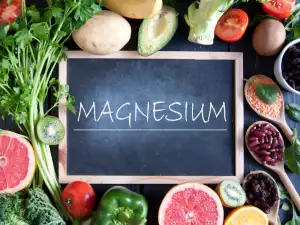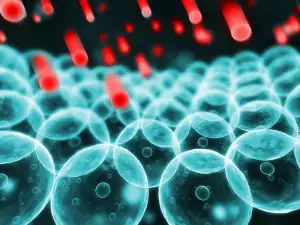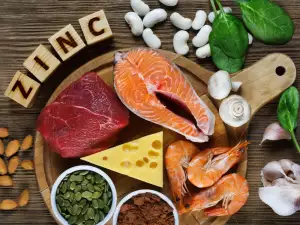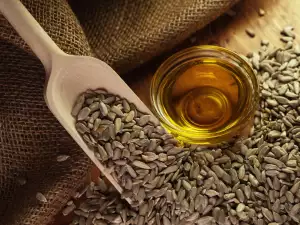Zinc is a trace mineral needed in the diet on a daily basis, but only in very small amounts (50 mg or less).
Functions of zinc
- Regulation of genetic activity. Zinc is an important regulator of many genetic activities. Body cells have a special compartment called a nucleus. Inside the nucleus, there are approximately 100 000 genes . These genes provide instructions to the cells and they need to decide how to read such instructions. Zinc is essential for reading the genetic instructions, when having insufficient zinc, the instructions may be interpreted wrongly.
- Support for blood sugar balance and your metabolic rate. Insulin, a hormone produced by the pancreas, is needed to move sugar from the blood into the cells. The response of cells to insulin is called insulin response. When food does not provide enough zinc, insulin response decreases and it becomes more difficult to stabilize blood sugar.
Metabolic rate - the rate at which the body creates and uses energy also depends on zinc for its regulation. When zinc is deficient, the metabolic rate drops along with the hormone production of the thyroid gland.
- Maintains awareness of smell and taste. Gastine is a small protein that is directly involved in the sensation of taste. Zinc is needed to be associated with this protein, or that feeling can not function properly.
- Maintenance of your immune function - many types of immune cells depend on zinc for optimal functioning.
Zinc deficiency
Because of the relationship between zinc and the senses of taste and smell, impaired sensation is a common symptom of zinc deficiency. Depression , lack of appetite , poor growth in children, and frequent colds and infections can also be symptoms of zinc deficiency.
Overdose with zinc
Metallic, bitter taste in the mouth may be indicative of the toxicity caused by excessive intake of zinc. Also, the toxicity is associated with abdominal pain, nausea, vomiting, cramps and diarrhea.
Dietologists determine the allowable upper limit for zinc intake at 40 mg per day for persons 19 and older.

Contact with water for some foods that have a higher content of zinc in soluble form, results in high losses of this mineral.
The supply of zinc in the body can be reduced by taking the following medications: thiazide diuretics as Diuril or Enduron; ACE inhibitors and Capozide Lotensin; antibiotics such as tetracycline or penicilinamine, ranitidine, and oral contraceptives (birth control pills).
Properties of zinc
Zinc may play a role in the prevention and / or treatment of the following diseases: acne, alcoholism , Alzheimer's disease, anorexia, atopic dermatitis, cervical dysplasia, Crohn's disease, diabetes, epilepsy, hyperthyroidism, herpes, AIDS, male infertility, inflammatory bowel disease, influenza, osteoarthritis, psoriasis , rheumatoid arthritis and others.
Sources of Zinc
Dietary supplements containing zinc are presented in chelated form where zinc is linked to another molecule. Chelated supplements most often fall into two categories. The first category of organic acids includes picoline acid, oroticine acid, citric acid and gluconic acid. The second category is amino acids, including methionine, etc.
Dietary supplements containing zinc are also available in the inorganic form, occurring in the form of zinc sulfate or zinc oxide.
Beef liver, mushrooms and spinach are good sources of zinc. Other good sources are: sea vegetables, basil, thyme, pumpkin seeds, beef, lamb, asparagus, venison, shrimp, maple syrup, broccoli, peas, yogurt, sesame seeds, mustard seeds, etc.
















Comments